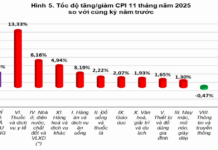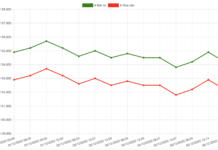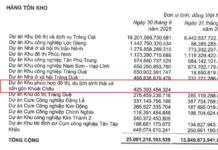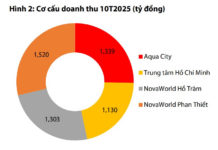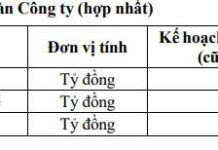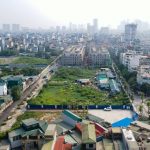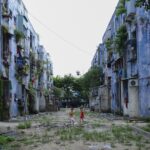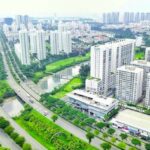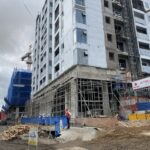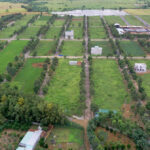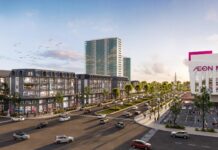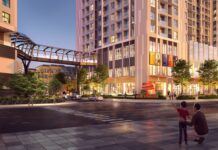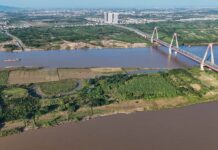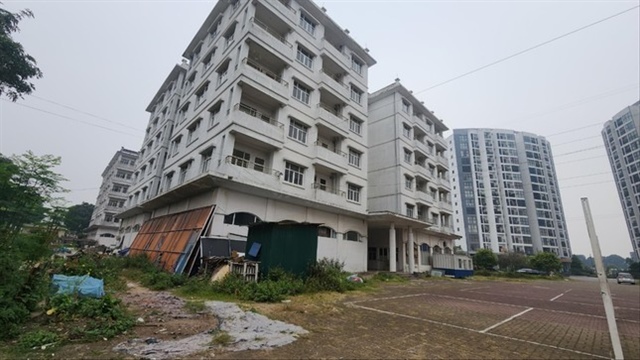
Long Bien district’s vacant TDC building |
Thousands of Vacant Relocation Apartments
The Den Lu II project in Hoang Mai district, comprising three blocks of relocation apartments, was completed in late 2017, offering hundreds of units. However, these three buildings remain vacant, and many components have deteriorated.
According to Tran Thi Huyen from Hoang Mai district, it is a waste to see these empty buildings every day when her family is still renting. “I’ve applied to buy social housing twice but was unsuccessful. Meanwhile, purchasing commercial apartments or land is beyond our financial means. It would be fantastic if the government could convert these vacant relocation apartments into social housing for sale or rent,” she shared.
Similarly, the old quarter relocation area in Thuong Thanh ward, Long Bien district, has been abandoned for over a decade, with no occupants. The three relocation buildings N3, N4, and N5 in the Sai Dong Urban Area (Long Bien district) also remain unoccupied, despite being completed years ago.
According to the Vietnam Real Estate Brokers Association (Vars), there are approximately 18,000 vacant relocation apartments in Hanoi and Ho Chi Minh City, with Hanoi accounting for about 4,000 units. The Hanoi Department of Construction attributes this situation to ongoing complaints from relocated households and incomplete projects due to funding shortages.
According to the Tien Phong newspaper’s investigation, a significant contradiction exists in Hanoi, with vacant areas and a shortage of housing in other locations. Ba Dinh district, for example, requires more than 1,500 relocation apartments for the Vanh Dai 1 project (Voi Phuc – Hoang Cau section). Despite multiple introductions and arrangements by the Hanoi Department of Construction, there is still a shortage of approximately 300 apartments.
Given the numerous vacant relocation buildings, Prime Minister Pham Minh Chinh instructed the Ministry of Construction to consider converting unused relocation housing into social housing during a meeting on May 17 to discuss solutions to obstacles in investing in and developing social housing.
|
Hanoi’s Vice Chairman, Duong Duc Tuan, has recently issued a plan to organize a dialogue to address difficulties faced by enterprises investing and operating in the fields of social housing and parking lots. The conference will take place in November at the Hanoi People’s Committee office, with 150-200 participants, including representatives from relevant ministries, the Hanoi People’s Committee, departments, and branches; leaders of districts, counties, and towns; representatives of banks and investment funds in Hanoi; representatives of business associations; state corporations operating in the fields of housing, parking lots, and the environment in Hanoi; and representatives of 20-30 enterprises investing and operating in the fields of housing, parking lots, and the environment in the city. |
Addressing Legal and Project Quality Challenges
According to experts, while converting vacant relocation apartments into social housing is a sound policy, two significant challenges must be overcome: legal framework and project quality.
Architect Nguyen Van Kien, a lecturer at Hanoi Architectural University, pointed out that most relocation apartments were designed over a decade ago and are now outdated regarding the living standards of modern families. Consequently, upgrading these apartments to meet new comfort standards will be challenging due to the large and complex scale of the structures.
Lawyer Nguyen Thi Vinh, from the Hanoi Bar Association, noted the distinction between relocation housing and social housing. The legal framework for implementing the conversion is currently outlined in Point a, Clause 1, Article 124 of the 2023 Housing Law. However, this provision remains principle-based and lacks detailed guidelines.
Lawyer Nguyen Van Chien, former Vice Chairman of the Vietnam Bar Federation and National Assembly Deputy of the 14th term, agreed with the proposal to convert vacant relocation apartments into social housing. However, he emphasized the need to address challenges related to mechanisms and policies associated with current laws and regulations.
According to Lawyer Nguyen Van Chien, Point a, Clause 1, Article 124 of the 2023 Housing Law provides the legal basis for competent authorities to consider and implement the conversion from the date the law takes effect. However, there are still some obstacles to this conversion. One issue is the standard area of social housing units, which ranges from a minimum of 25 square meters to a maximum of 70 square meters. In contrast, relocation housing has no area restrictions to accommodate multiple generations living together.
Moreover, the development of these two housing types serves different purposes and targets different groups. Consequently, the procedures for developing these projects differ in legal procedures, such as land allocation, housing development plans, and investor selection. Therefore, converting relocation housing into social housing requires addressing the complex issue of conversion procedures.
Thanh Hieu
Accelerating disbursement of the 120 trillion VND credit package for social housing
Deputy Prime Minister Trần Hồng Hà has recently issued directives regarding the implementation of the 120,000 billion VND credit package for investors and buyers of social housing, workers’ housing, and projects for the renovation and construction of apartment buildings.
Challenging to Get Affordable Loans for Social Housing
The discrepancy between legal regulations and lending policies of banks has made it difficult for businesses to access favorable loans for social housing development.








